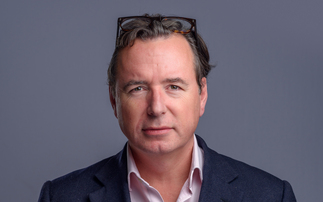The business model of private banking is undergoing a subtle but profound shift. Historically, the industry provided its wealthy clients with services such as investment advice for "free", while recouping these costs through commissions from products sold and trades executed. Slowly, but surely, the industry is moving towards charging clients explicitly for investment advice.
Swiss private banks are the first movers in embracing this shift towards a fee-based advisory model. The trend started a couple of years ago following a Switzerland Supreme Court ruling on retrocessions. Already most of the advisory assets held for Swiss-domiciled clients have been shifted to the new pricing model. It is likely to be rolled out to other EMEA and Asia-Pacific clients over the course of 2018. Following the Swiss banks' lead, the trend will likely spread to banks in other regions.
A confluence of forces is driving the shift. First, regulatory changes, such as the upcoming implementation of Mifid II, aim to enhance transparency around client charges and are speeding up the change. New regulations are also eroding the banking industry's margins by curbing traditional revenue streams while adding to compliance costs. Finally, digitalisation is changing the provision of investment advice. As technology increases efficiencies in parts of the process, it allows banks' relationship managers to deliver more value-added services to clients.
The ambition to bring investors under a contractual binding framework thereby establishing a fiduciary relationship, offering state of the art investment advice at a defined price, is one of the biggest transformations the private banking industry has undergone in recent years. This forces banks to change their client services approach from one focused on product placement to being a solutions provider.
Private banks will need to deliver their clients a top-down investment view with a strong focus on asset allocation. A structured investment process, including a strong house-view framework, ensures that all investors are advised similarly. This kind of consistency helps satisfy the important investor need of restoring trust in the advice process.
In implementing asset allocation decisions per their new fiduciary capacity, private banks will look for investment building blocks. This will see their product preference shift to a bar-bell strategy. Bankers will seek alpha exposure from high-quality active funds and complement this with a low-cost beta exposure from passive products especially to achieve ESG and other thematic overlays. Asset managers, therefore, need to reassess their product and service offerings for private banks.
The new fee-based advisory model offers investors greater transparency on how much they are paying for advice while also getting access to investment research expertise beyond their relationship manager. Indeed, investors can customise the price they pay depending on the level of advice and service they require. What is more, all fee-based advisory models include an embedded risk-mitigated investment approach and multiple forms of debts and portfolio health checks.
Over time the new model should increase both the frequency and quality of interaction between clients and relationship managers.
In so far as the new model leads to more satisfied investors, banks will benefit from better client retention as well as a potential increase of net new asset flows. In addition, in the previous model, bank revenues were uncertain and dependent on market movements. The new model offers banks greater certainty regarding cash flows and revenues, and hence the opportunity of better business planning.
Getting clients to pay for a service is nothing new, but for a traditional industry such as private banking this marks a fundamental shift. The increasing adoption of a fee-based advisory next year by large and mid-size private banks looks set to transform traditional banking not only in Switzerland but at a global scale. The new model has potential benefits for banks and investors alike. In addition, it offers opportunities for asset managers involved in the value chain.
Sven Württemberger - Head of Passive Investments, Switzerland & Israel
Hans-Jörg Morath - Vice President, Passive Investments Switzerland
Past performance is not a reliable indicator of future performance. The views and information discussed herein are as of the date of publication, are subject to change and may not reflect current views. The views expressed represent an assessment of market conditions at a specific point in time, are opinions only and should not be relied upon as investment advice regarding a particular investment or markets in general. Such information does not constitute a recommendation to buy or sell specific securities or investment vehicles. The information contained herein has been derived from sources believed to be reliable and accurate at the time of compilation, but no representation or warranty (express or implied) is made as to the accuracy or completeness of any of this information.
In the UK, this document is only made available to professional clients and eligible counterparties as defined by the Financial Conduct Authority ("FCA"). This article was written by Sven Wuerttemberger and Hans-Joerg Morath of Deutsche Asset Management Schweiz AG on behalf of the Deutsche Asset Management Global Research.














